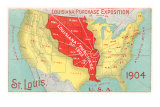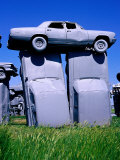|
|
|
|
|
|
|
Omaha, the largest city in Nebraska, is named after the Omaha Tribe, the most powerful indigeous peoples on the Great Plains in the late 18th and early 19th century. They were the first in the region to master horses, and developed a trade network with the early white explorers.
The Pawnee tribe, one of the dominant tribes on the Great Plains historically lived along the Platte, Loup and Republican Rivers tributaries of the Missouri River, followed a sedentary village life with seasonal hunting, a way of plains life which had been continuous since about 1250 CE. By 1859 their number had been reduced by European diseases.
The Ponca, who are related to the Omaha tribe, appear on a 1701 map by a French explorer, showing them along the Missouri River. The Lewis and Clark Expedition found only 200 survivors of a smallpox epidemic in 1804. The US government violated the Ponca Treaty and lands, which eventually lead to the Standing Bear Trial establishing important civil rights for Native Americans as “persons within the meaning of the law”.
|
|
|
|
|
|
|
The First Transcontinental Railroad, with parallel telegraph lines, connecting Council Bluffs, Iowa/Omaha, Nebraska to Alameda, California, was built between 1863 and 1869. The railroad, by accelerating settlement of the West and what was previously considered a desert wasteland, contributed to the decline of territory controlled by the Native Americans. The 1890 Census would declare that the American frontier had disappeared.
|
|
|
|
Carhenge, a replica of England's Stonehenge, is built of 38 vintage automobles, spray painted gray, and embedded in the earth, or welded together to form arches.
|
|
|
|
William F. “Buffalo Bill” Cody
b. 2-26-1846; LeClaire, Iowa
d. 1-10-1917; Colorado
The showman William F. “Buffalo Bill” Cody founded his “Buffalo Bill’s Wild West Show” at his ranch near North Platte, Nebraska to present the Native Americans and real working people of the fast disappearing Old West.
Cody, one of the founders of Cody, WY, was also noted for his conservation efforts and speaking out in favor of women voting.
|
|
|
|
William Jennings Bryan
b. 3-19-1860; Illinois
d. 7-26-1925
Lawyer, politician and orator William Jennings Bryan and his wife Mary, also a lawyer, moved to Nebraska in the late 1880s.
Bryan, the Democratic Party nominee for US President in 1896, 1900, and 1908, served as Woodrow Wilson's Secretary of State 1913-1915.
He was also the most popular Chautauqua speaker, delivering thousands of paid speeches mostly about religion.
Bryan, whose nickname was “The Great Commoner” is also remembered for his attack on Darwinism and evolution at the 1925 Scopes “Monkey” Trial. Inherit the Wind, a 1955 play, is a fictionalized account of the Scopes Trial.
William Jennings Bryan quotes ~
• “Burn down your cities and leave our farms, and your cities will spring up again as if by magic; but destroy our farms and the grass will grow in the streets of every city in the country.”
• “If the Bible had said that Jonah swallowed the whale, I would believe it.”
• “The chief duty of governments, in so far as they are coercive, is to restrain those who would interfere with the inalienable rights of the individual, among which are the right to life, the right to liberty, the right to the pursuit of happiness and the right to worship God according to the dictates of one's conscience.”
• “Universal peace cannot come until justice is enthroned throughout the world. Until the right has triumphed in every land and love reigns in every heart, government must, as a last resort, appeal to force.”
• Memoirs of William Jennings Bryan
|
|
|
|
J. Sterling Morton
b. 4-22-1832; Adams, NY
d. 4-27-1902; Lake Forest, IL
Julius Sterling Morton, the founder of Arbor Day, was the Secretary of Agriculture for President Cleveland and also served as Secretary of Nebraska Territory and Acting Governor.
FYI - Morton's son Joy (Joy was his mother's family name) was the founder of the Morton Salt Company in Chicago.
|
|
|
previous page | top
Nebraska 1 | 2
|
|
I have searched the web for visual, text, and manipulative curriculum support materials - teaching posters, art prints, maps, charts, calendars, books and educational toys featuring famous people, places and events - to help teachers optimize their valuable time and budget.
Browsing the subject areas at NetPosterWorks.com is a learning experience where educators can plan context rich environments while comparing prices, special discounts, framing options and shipping from educational resources.
Thank you for starting your search for inspirational, motivational, and educational posters and learning materials at NetPosterWorks.com. If you need help please contact us.
|
|
|




















